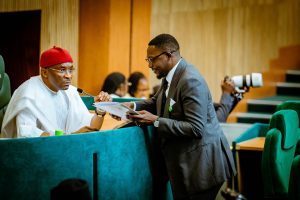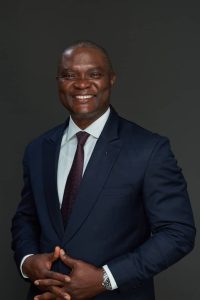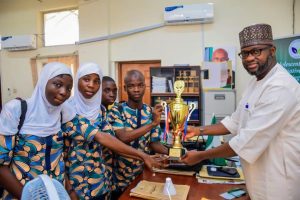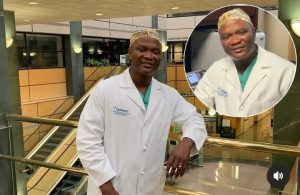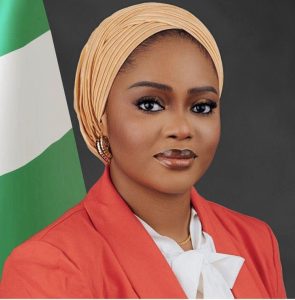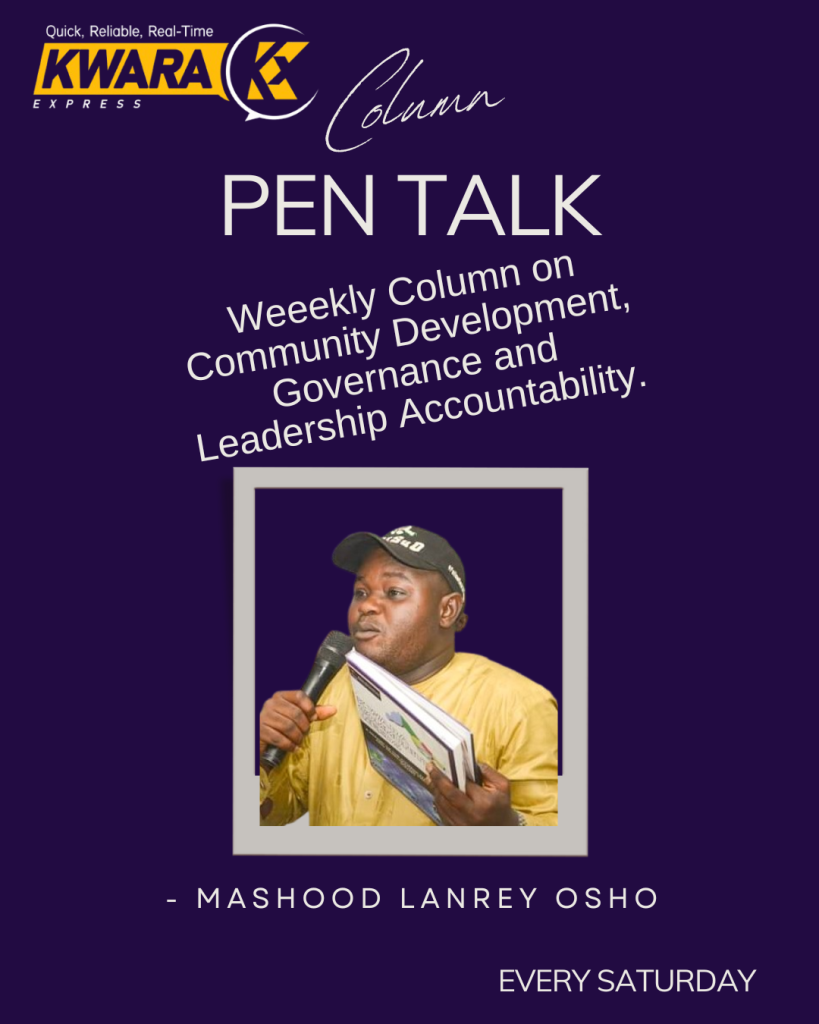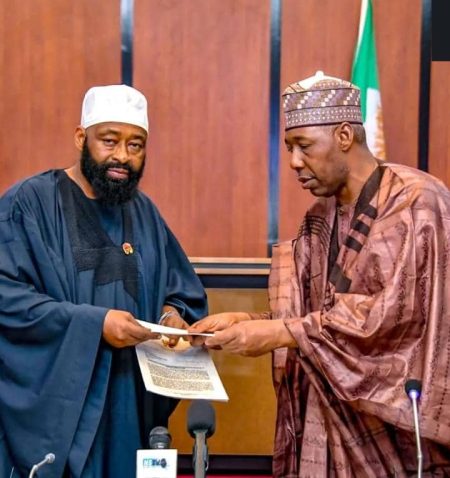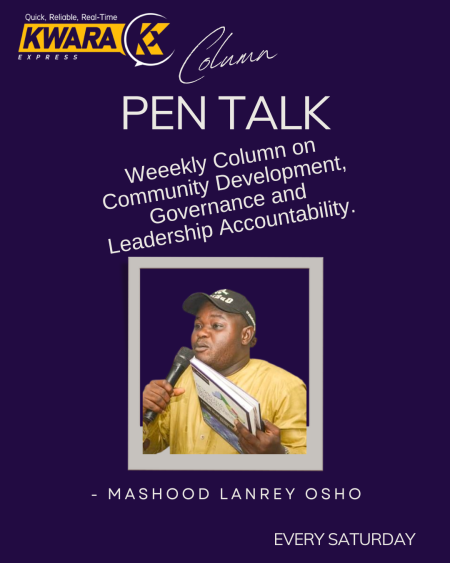Fellow Kwarans, I must confess that our state is truly blessed. Kwara State boasts talented and educated individuals in various fields, but despite this, we haven’t reached our full potential. We’re sleeping deeply, and it’s high time we wake up before it’s too late. The alarming rates of poverty, unemployment, infrastructure deficit, insecurity, and hunger affecting our people indicate that governments at all levels haven’t done enough to drive the state forward. This bleak reality saddens my heart and fills me with concern for the state’s future.
However, I firmly believe that there’s hope for Kwara State. My participation on the 22nd November 2024 Kwara Citizens Development Initiative (KCDI) monthly Citizens Mentorship programme at the secretariat in ilorin was a testament to this hope. Professor Ali Babatunde Ahmad delivered an invaluable speech, mentoring us on how to overcome life’s challenges and become our own bosses, ultimately benefiting our families, relatives, Kwara State, and the country at large. I found the program incredibly engaging, and I wish it could continue indefinitely. As promised, I’m writing about the program today to give those who missed it a sense of belonging.
Professor Ahmad’s mentorship was a shining example of the transformative power of guidance and support. As highlighted in various mentorship examples, a good mentorship relationship is built on mutual respect, trust, and open communication. I had the privilege of reading Professor Ahmad’s speech multiple times, and each time, I gained new insights. What resonated with me most was his inspiring “grass-to-grace” story. He shared how he had always aimed high, which ultimately led him to achieve greatness. He emphasized the importance of working diligently towards one’s desires. His personal narrative was truly captivating, as he recounted his humble beginnings as a bus conductor in Kaduna State. He also shared how he met former Military President Babangida, who awarded him a scholarship to study abroad through his foundation. Similarly, Alhaja Bola Agoyi (Sayi) shared her remarkable journey from Ilorin to the United States of America.
I must say that the youth of today often expect to rise to success without putting in the necessary effort, which is unrealistic. No success comes without pain. I was fortunate to have been raised by parents who instilled in me the value of hard work and the importance of reaping rewards from one’s efforts. I have embraced this culture, and it has never failed me. Throughout my life, I have faced numerous challenges. I recall working as a bus conductor on Lagos Island, just like Professor Ali Ahmed. I also sold yoghurt and puff-puff on the streets of Lagos island. Also ,recall my humble beginnings, sharing a small shop with six friends in Pelewura Market and Oja-oba on Lagos Island, where we all hustled together for four formative years. Those times were marked by immense struggle and hardship, but I remain eternally grateful to God Almighty Allah for His blessings and guidance, which have brought me to where I am today.
In 2004, I wrote my first JAMB exam at Obalende, Lagos State, while hustling to make ends meet. Fortunately, I gained admission to the Federal Polytechnic, Offa. However, a dispute with a lecturer led to my withdrawal. Undeterred, I restarted my journey, reading newspapers at various joints in Ilorin .I eventually established three newspapers venture and later gained admission to the Kwara State Polytechnic, Ilorin, where I earned my OND and HND in Statistics. The rest, as they say, is history. (Alliamduliah).By His grace, I have achieved notable milestones, including the successful launch of two books. I am also thrilled to announce that I will be launching my third book on December 29th. I appreciate God Almighty for His unwavering blessings and provision.We must commend KCDI for their monthly mentorship program, which provides a platform for accomplished individuals to share their success stories, inspiring Kwaran youth and elderly alike to learn from their experiences.
Another segment of the mentorship program that I deeply admired was when Prince Tunji Morofoye questioned Professor Ali Ahmed, the Former Speaker of the Kwara State House of Assembly, about a specific incident. Professor Ali Ahmed recounted how former Governor Abdulfatah Ahmed had written to the House, seeking approval to obtain a bond. Despite their friendship and political affiliation, Professor Ahmed explained that he couldn’t betray the trust of the Kwaran people, who had elected him and his colleagues. He told the Governor that they would consult with their constituents, and upon doing so, the people rejected the bond proposal. This led the Governor to the establishment of Kwara State Internal Revenue Service (KWIRS), which has been generating substantial revenue for the state up till today.
Thus, if Professor Ahmed had approved the Abdulfati Ahmed request, Megida might not have considered establishing KWIRS. A valuable lesson can be learned from this experience. prioritizing the people’s interests above political affiliations and thinking beyond personal interests. I reminded Professor Ahmed of the time when Amoye. Sidiq Bola, Barrister Raji, and I met with him to lobby for the passage of the Freedom of Information Bill (FOI) into law in Kwara State. He had labeled us “Otoge comrades,” but we defended ourselves, stating that we were not agents of the opposition. Professor Ahmed had assured us that he would ensure the bill’s passage, not for our sake, but for the benefit of Kwara State citizens and posterity.
I also recalled how Honorable Saheed Popoola had left the House during the plenary session when the bill was up for passage, as he was the only one opposed to it. Although the clean copy of the bill had been transmitted to the Governor for assent and returned to KWHA for some amendment, it remains in limbo to this day. I jokingly told Professor Ahmed that it was now clear that we weren’t “Otoge comrades” but rather advocates for Kwara State, and everyone erupted in laughter.
I would like to commend everyone who participated in the program that featured Professor Ali Ahmed discussing Kwara State’s affairs. The presence of Advocate Azeez, Comrade Bolakale Bankido, Bolaji Aladie, Fatima Bintu Dikko, Musa Aliu, Pastor Bukoye, and others made the program engaging and enlightening. What struck me most was how we all put politics aside and focused on discussing Kwara State’s development. It was a truly interesting and informative experience.
Professor Ahmed’s advice to Kwara youths resonated deeply with me. He emphasized the importance of unity and ensuring that anyone who wishes to contest for a position should be invited to the KCDI secretariat to discuss their plans for state development. He stressed that this should not be about bringing money overnight to sway our people, as this approach has led to the challenges we face in the state today. I couldn’t agree more with Professor Ahmed’s sentiments.
It’s alarming how money has dominated politics in Nigeria, not just in Kwara State. Until we prioritize our collective development, we won’t reach our desired destination. As Professor Ahmed so aptly put it, Money is not everything, but development is our collective bargaining.
I strongly believe that the KCDI secretariat should be transformed into a Chatham House-style venue, where individuals aspiring for public office can engage with Kwara youths, as we did with Professor Ali Ahmed. His appreciation for people’s engagement, despite the challenges, resonated deeply with me. This is precisely why I’ve chosen the KCDI secretariat as the venue for my upcoming book launch on December 29th next month.
My book, which I’m excited to share with you, offers valuable insights for all 36 state governors and the president on managing protests, understanding the root causes of the August protests, and lessons learned from those events. It also explores how the government can build trust with citizens to prevent future protests in Nigeria.
The book launch will feature a panel discussion with esteemed guests, including Inspector General of Police Kayode Egbetokun, who will discuss why security agencies often fear protests and how they can manage protesters peacefully. Mallam Lanre Issa Onilu, Director General of the National Orientation Agency, will provide insights on whether protests are beneficial or not and how both the government and citizens can manage protests without violence.
Comrade ISSA Aremu, Director General of the Michael Imoudu Institute for Labour Studies, will discuss why governments at all levels often fear labor protests and why protests should not be a last resort for negotiations between governments and workers. Finally, Professor Ali Babatunde Ahmad will share his expertise on whether protesters need to obtain police orders or security clearance before organizing protests and why governments and citizens often fear protests.
I’m thrilled to have such a distinguished panel of experts sharing their knowledge and experiences, and I’m confident that my book will provide valuable insights for stakeholders across Nigeria.
God bless Nigeria.


